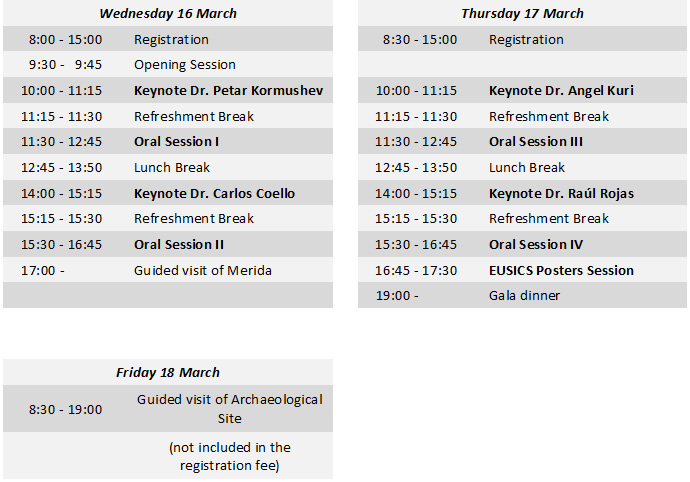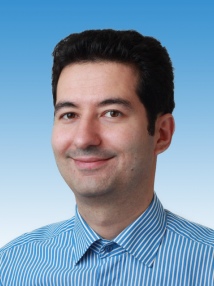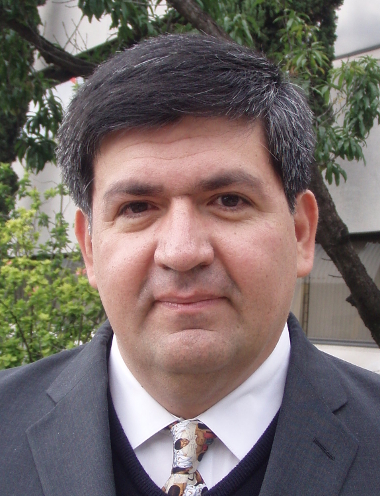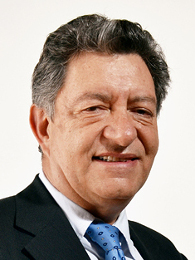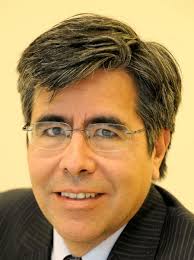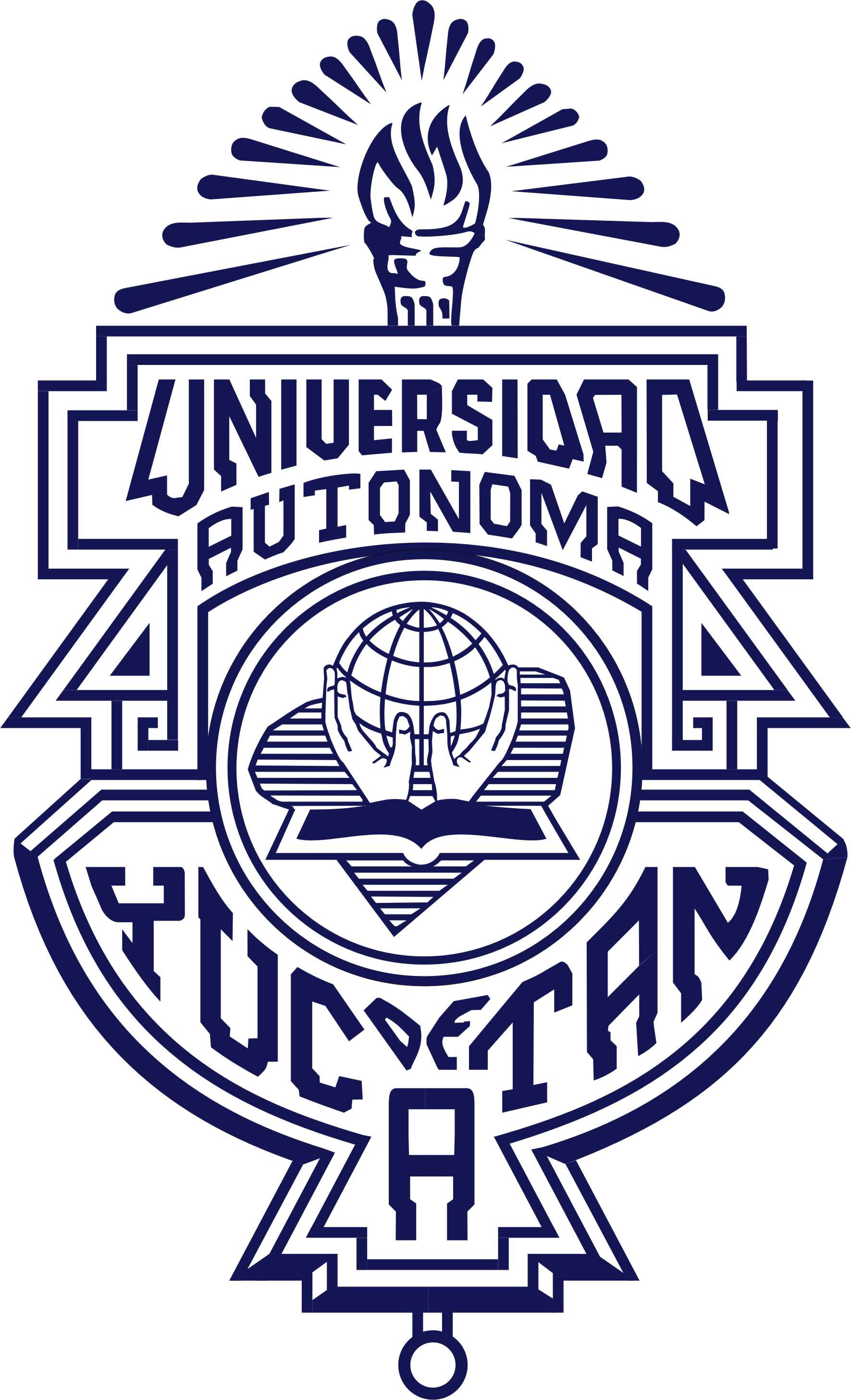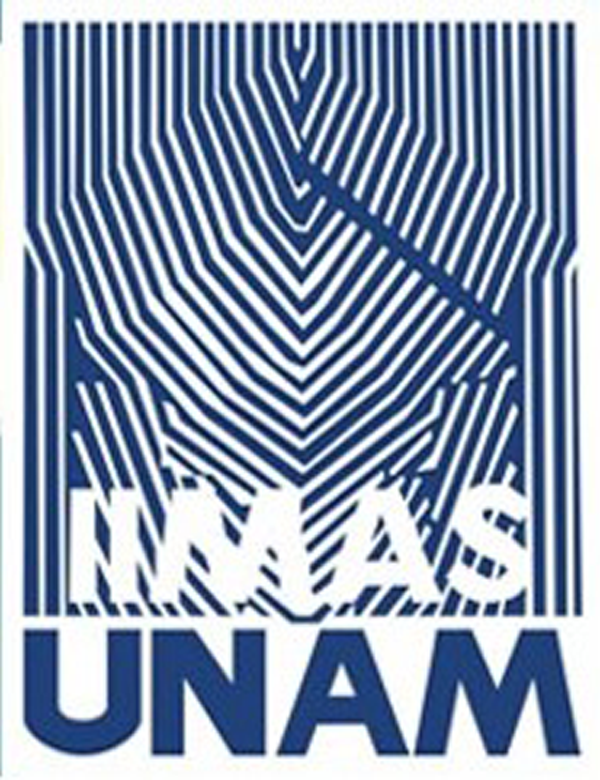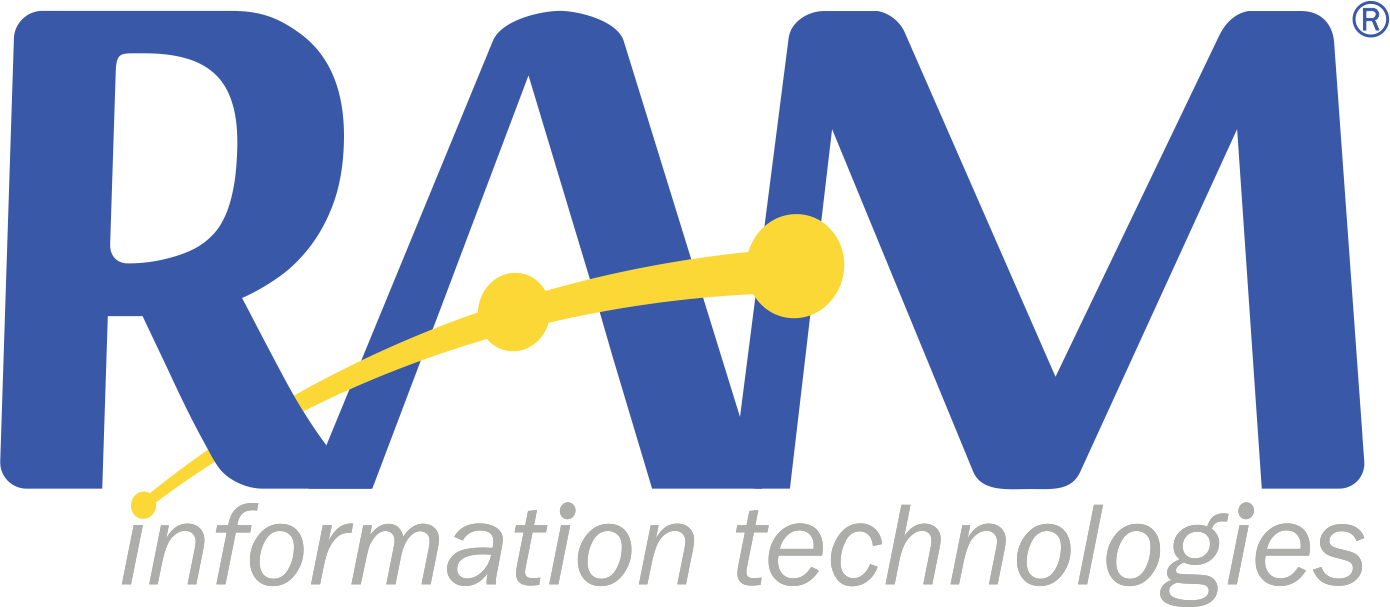Query Time: 0.59 ms Query memory: 0.022 MB Memory before query: 0.449 MB Rows returned: 1
SELECT `data`
FROM `xopbj_session`
WHERE `session_id` = '4eccbba386e7c39282cef41e499c3d2f'
| id | select_type | table | partitions | type | possible_keys | key | key_len | ref | rows | filtered | Extra |
|---|
| 1 | SIMPLE | xopbj_session | NULL | const | PRIMARY | PRIMARY | 766 | const | 1 | 100.00 | NULL |
| Status | Duration |
|---|
| starting | 0.06 ms |
| checking permissions | 0.01 ms |
| Opening tables | 0.03 ms |
| init | 0.02 ms |
| System lock | 0.01 ms |
| optimizing | 0.01 ms |
| statistics | 0.09 ms |
| preparing | 0.03 ms |
| executing | 0.01 ms |
| Sending data | 0.02 ms |
| end | 0.01 ms |
| query end | 0.01 ms |
| closing tables | 0.02 ms |
| freeing items | 0.09 ms |
| cleaning up | 0.03 ms |
| # | Caller | File and line number | | 14 | JDatabaseDriverMysqli->execute() | JROOT/libraries/joomla/database/driver.php:1728 |
| 13 | JDatabaseDriver->loadResult() | JROOT/libraries/joomla/session/storage/database.php:44 |
| 12 | JSessionStorageDatabase->read() | Same as call in the line below. |
| 11 | session_start() | JROOT/libraries/joomla/session/handler/native.php:259 |
| 10 | JSessionHandlerNative->doSessionStart() | JROOT/libraries/joomla/session/handler/native.php:49 |
| 9 | JSessionHandlerNative->start() | JROOT/libraries/joomla/session/handler/joomla.php:81 |
| 8 | JSessionHandlerJoomla->start() | JROOT/libraries/joomla/session/session.php:636 |
| 7 | JSession->_start() | JROOT/libraries/joomla/session/session.php:596 |
| 6 | JSession->start() | JROOT/libraries/cms/application/cms.php:773 |
| 5 | JApplicationCms->loadSession() | JROOT/libraries/cms/application/cms.php:131 |
| 4 | JApplicationCms->__construct() | JROOT/libraries/cms/application/site.php:63 |
| 3 | JApplicationSite->__construct() | JROOT/libraries/cms/application/cms.php:408 |
| 2 | JApplicationCms::getInstance() | JROOT/libraries/joomla/factory.php:125 |
| 1 | JFactory::getApplication() | JROOT/index.php:57 |
Query Time: 0.48 ms After last query: 0.33 ms Query memory: 0.003 MB Memory before query: 0.463 MB
DELETE
FROM `xopbj_session`
WHERE `time` < '1757006037'
| id | select_type | table | partitions | type | possible_keys | key | key_len | ref | rows | filtered | Extra |
|---|
| 1 | DELETE | xopbj_session | NULL | range | time | time | 59 | const | 1 | 100.00 | Using where |
| Status | Duration |
|---|
| starting | 0.04 ms |
| checking permissions | 0.01 ms |
| Opening tables | 0.02 ms |
| init | 0.02 ms |
| System lock | 0.06 ms |
| updating | 0.04 ms |
| end | 0.01 ms |
| query end | 0.02 ms |
| closing tables | 0.01 ms |
| freeing items | 0.10 ms |
| cleaning up | 0.02 ms |
| # | Caller | File and line number | | 6 | JDatabaseDriverMysqli->execute() | JROOT/libraries/cms/application/cms.php:790 |
| 5 | JApplicationCms->loadSession() | JROOT/libraries/cms/application/cms.php:131 |
| 4 | JApplicationCms->__construct() | JROOT/libraries/cms/application/site.php:63 |
| 3 | JApplicationSite->__construct() | JROOT/libraries/cms/application/cms.php:408 |
| 2 | JApplicationCms::getInstance() | JROOT/libraries/joomla/factory.php:125 |
| 1 | JFactory::getApplication() | JROOT/index.php:57 |
Query Time: 0.96 ms After last query: 0.50 ms Query memory: 0.021 MB Memory before query: 0.486 MB Rows returned: 30
SELECT `extension_id` AS `id`,`element` AS `option`,`params`,`enabled`
FROM `xopbj_extensions`
WHERE `type` = 'component'
| id | select_type | table | partitions | type | possible_keys | key | key_len | ref | rows | filtered | Extra |
|---|
| 1 | SIMPLE | xopbj_extensions | NULL | ref | extension | extension | 82 | const | 30 | 100.00 | NULL |
| Status | Duration |
|---|
| starting | 0.06 ms |
| checking permissions | 0.01 ms |
| Opening tables | 0.02 ms |
| init | 0.03 ms |
| System lock | 0.01 ms |
| optimizing | 0.01 ms |
| statistics | 0.06 ms |
| preparing | 0.02 ms |
| executing | 0.01 ms |
| Sending data | 0.29 ms |
| end | 0.02 ms |
| query end | 0.02 ms |
| closing tables | 0.02 ms |
| freeing items | 0.16 ms |
| cleaning up | 0.04 ms |
| # | Caller | File and line number | | 9 | JDatabaseDriverMysqli->execute() | JROOT/libraries/joomla/database/driver.php:1689 |
| 8 | JDatabaseDriver->loadObjectList() | JROOT/libraries/joomla/cache/controller/callback.php:152 |
| 7 | JCacheControllerCallback->get() | JROOT/libraries/cms/component/helper.php:448 |
| 6 | JComponentHelper::load() | JROOT/libraries/cms/component/helper.php:43 |
| 5 | JComponentHelper::getComponent() | JROOT/libraries/cms/component/helper.php:120 |
| 4 | JComponentHelper::getParams() | JROOT/libraries/cms/application/site.php:589 |
| 3 | JApplicationSite->initialiseApp() | JROOT/libraries/cms/application/site.php:209 |
| 2 | JApplicationSite->doExecute() | JROOT/libraries/cms/application/cms.php:261 |
| 1 | JApplicationCms->execute() | JROOT/index.php:60 |
Query Time: 0.75 ms After last query: 0.43 ms Query memory: 0.021 MB Memory before query: 0.500 MB Rows returned: 2
SELECT b.id
FROM xopbj_usergroups AS a
LEFT JOIN xopbj_usergroups AS b
ON b.lft <= a.lft
AND b.rgt >= a.rgt
WHERE a.id = 9
| id | select_type | table | partitions | type | possible_keys | key | key_len | ref | rows | filtered | Extra |
|---|
| 1 | SIMPLE | a | NULL | const | PRIMARY | PRIMARY | 4 | const | 1 | 100.00 | NULL |
| 1 | SIMPLE | b | NULL | range | idx_usergroup_nested_set_lookup | idx_usergroup_nested_set_lookup | 4 | NULL | 2 | 100.00 | Using where; Using index |
| Status | Duration |
|---|
| starting | 0.07 ms |
| checking permissions | 0.01 ms |
| checking permissions | 0.01 ms |
| Opening tables | 0.02 ms |
| init | 0.03 ms |
| System lock | 0.01 ms |
| optimizing | 0.02 ms |
| statistics | 0.14 ms |
| preparing | 0.04 ms |
| executing | 0.01 ms |
| Sending data | 0.06 ms |
| end | 0.01 ms |
| query end | 0.02 ms |
| closing tables | 0.02 ms |
| freeing items | 0.13 ms |
| cleaning up | 0.04 ms |
| # | Caller | File and line number | | 11 | JDatabaseDriverMysqli->execute() | JROOT/libraries/joomla/database/driver.php:1538 |
| 10 | JDatabaseDriver->loadColumn() | JROOT/libraries/joomla/access/access.php:835 |
| 9 | JAccess::getGroupsByUser() | JROOT/libraries/joomla/access/access.php:904 |
| 8 | JAccess::getAuthorisedViewLevels() | JROOT/libraries/joomla/user/user.php:454 |
| 7 | JUser->getAuthorisedViewLevels() | JROOT/libraries/cms/plugin/helper.php:296 |
| 6 | JPluginHelper::load() | JROOT/libraries/cms/plugin/helper.php:86 |
| 5 | JPluginHelper::getPlugin() | JROOT/libraries/cms/plugin/helper.php:128 |
| 4 | JPluginHelper::isEnabled() | JROOT/libraries/cms/application/site.php:599 |
| 3 | JApplicationSite->initialiseApp() | JROOT/libraries/cms/application/site.php:209 |
| 2 | JApplicationSite->doExecute() | JROOT/libraries/cms/application/cms.php:261 |
| 1 | JApplicationCms->execute() | JROOT/index.php:60 |
Query Time: 0.50 ms After last query: 0.18 ms Query memory: 0.020 MB Memory before query: 0.505 MB Rows returned: 5
SELECT id, rules
FROM `xopbj_viewlevels`
| id | select_type | table | partitions | type | possible_keys | key | key_len | ref | rows | filtered | Extra |
|---|
| 1 | SIMPLE | xopbj_viewlevels | NULL | ALL | NULL | NO INDEX KEY COULD BE USED | NULL | NULL | 5 | 100.00 | NULL |
| Status | Duration |
|---|
| starting | 0.05 ms |
| checking permissions | 0.01 ms |
| Opening tables | 0.02 ms |
| init | 0.02 ms |
| System lock | 0.01 ms |
| optimizing | 0.01 ms |
| statistics | 0.02 ms |
| preparing | 0.02 ms |
| executing | 0.01 ms |
| Sending data | 0.06 ms |
| end | 0.01 ms |
| query end | 0.01 ms |
| closing tables | 0.01 ms |
| freeing items | 0.08 ms |
| cleaning up | 0.02 ms |
| # | Caller | File and line number | | 10 | JDatabaseDriverMysqli->execute() | JROOT/libraries/joomla/database/driver.php:1494 |
| 9 | JDatabaseDriver->loadAssocList() | JROOT/libraries/joomla/access/access.php:921 |
| 8 | JAccess::getAuthorisedViewLevels() | JROOT/libraries/joomla/user/user.php:454 |
| 7 | JUser->getAuthorisedViewLevels() | JROOT/libraries/cms/plugin/helper.php:296 |
| 6 | JPluginHelper::load() | JROOT/libraries/cms/plugin/helper.php:86 |
| 5 | JPluginHelper::getPlugin() | JROOT/libraries/cms/plugin/helper.php:128 |
| 4 | JPluginHelper::isEnabled() | JROOT/libraries/cms/application/site.php:599 |
| 3 | JApplicationSite->initialiseApp() | JROOT/libraries/cms/application/site.php:209 |
| 2 | JApplicationSite->doExecute() | JROOT/libraries/cms/application/cms.php:261 |
| 1 | JApplicationCms->execute() | JROOT/index.php:60 |
Query Time: 1.35 ms After last query: 0.11 ms Query memory: 0.020 MB Memory before query: 0.513 MB Rows returned: 43
SELECT folder AS type, element AS name, params
FROM xopbj_extensions
WHERE enabled = 1
AND type ='plugin'
AND state IN (0,1)
AND access IN (1,1,5)
ORDER BY ordering
| id | select_type | table | partitions | type | possible_keys | key | key_len | ref | rows | filtered | Extra |
|---|
| 1 | SIMPLE | xopbj_extensions | NULL | ref | extension | extension | 82 | const | 55 | 0.72 | Using index condition; Using where; Using filesort |
| Status | Duration |
|---|
| starting | 0.07 ms |
| checking permissions | 0.01 ms |
| Opening tables | 0.02 ms |
| init | 0.03 ms |
| System lock | 0.01 ms |
| optimizing | 0.02 ms |
| statistics | 0.07 ms |
| preparing | 0.06 ms |
| Sorting result | 0.02 ms |
| executing | 0.01 ms |
| Sending data | 0.02 ms |
| Creating sort index | 0.66 ms |
| end | 0.01 ms |
| query end | 0.01 ms |
| closing tables | 0.01 ms |
| freeing items | 0.10 ms |
| cleaning up | 0.03 ms |
| # | Caller | File and line number | | 8 | JDatabaseDriverMysqli->execute() | JROOT/libraries/joomla/database/driver.php:1689 |
| 7 | JDatabaseDriver->loadObjectList() | JROOT/libraries/cms/plugin/helper.php:310 |
| 6 | JPluginHelper::load() | JROOT/libraries/cms/plugin/helper.php:86 |
| 5 | JPluginHelper::getPlugin() | JROOT/libraries/cms/plugin/helper.php:128 |
| 4 | JPluginHelper::isEnabled() | JROOT/libraries/cms/application/site.php:599 |
| 3 | JApplicationSite->initialiseApp() | JROOT/libraries/cms/application/site.php:209 |
| 2 | JApplicationSite->doExecute() | JROOT/libraries/cms/application/cms.php:261 |
| 1 | JApplicationCms->execute() | JROOT/index.php:60 |
Query Time: 0.78 ms After last query: 3.62 ms Query memory: 0.038 MB Memory before query: 0.784 MB Rows returned: 18
SELECT m.id, m.menutype, m.title, m.alias, m.note, m.path AS route, m.link, m.type, m.level, m.language,`m`.`browserNav`, m.access, m.params, m.home, m.img, m.template_style_id, m.component_id, m.parent_id,e.element as component
FROM xopbj_menu AS m
LEFT JOIN xopbj_extensions AS e
ON m.component_id = e.extension_id
WHERE m.published = 1
AND m.parent_id > 0
AND m.client_id = 0
ORDER BY m.lft
| id | select_type | table | partitions | type | possible_keys | key | key_len | ref | rows | filtered | Extra |
|---|
| 1 | SIMPLE | m | NULL | range | idx_client_id_parent_id_alias_language | idx_client_id_parent_id_alias_language | 5 | NULL | 23 | 10.00 | Using index condition; Using where; Using filesort |
| 1 | SIMPLE | e | NULL | eq_ref | PRIMARY | PRIMARY | 4 | mulkinte_isicscms.m.component_id | 1 | 100.00 | Using where |
| Status | Duration |
|---|
| starting | 0.07 ms |
| checking permissions | 0.01 ms |
| checking permissions | 0.01 ms |
| Opening tables | 0.02 ms |
| init | 0.03 ms |
| System lock | 0.01 ms |
| optimizing | 0.01 ms |
| statistics | 0.06 ms |
| preparing | 0.02 ms |
| Sorting result | 0.01 ms |
| executing | 0.00 ms |
| Sending data | 0.02 ms |
| Creating sort index | 0.28 ms |
| end | 0.01 ms |
| query end | 0.01 ms |
| closing tables | 0.01 ms |
| freeing items | 0.08 ms |
| cleaning up | 0.02 ms |
| # | Caller | File and line number | | 16 | JDatabaseDriverMysqli->execute() | JROOT/libraries/joomla/database/driver.php:1689 |
| 15 | JDatabaseDriver->loadObjectList() | JROOT/libraries/cms/menu/site.php:86 |
| 14 | JMenuSite->load() | JROOT/libraries/cms/menu/menu.php:74 |
| 13 | JMenu->__construct() | JROOT/libraries/cms/menu/site.php:57 |
| 12 | JMenuSite->__construct() | JROOT/libraries/cms/menu/menu.php:145 |
| 11 | JMenu::getInstance() | JROOT/libraries/cms/application/cms.php:439 |
| 10 | JApplicationCms->getMenu() | JROOT/libraries/cms/application/site.php:272 |
| 9 | JApplicationSite->getMenu() | JROOT/libraries/cms/router/site.php:57 |
| 8 | JRouterSite->__construct() | JROOT/libraries/cms/router/router.php:197 |
| 7 | JRouter::getInstance() | JROOT/libraries/cms/application/cms.php:535 |
| 6 | JApplicationCms::getRouter() | JROOT/libraries/cms/application/site.php:407 |
| 5 | JApplicationSite::getRouter() | JROOT/libraries/cms/application/cms.php:1115 |
| 4 | JApplicationCms->route() | JROOT/libraries/cms/application/site.php:791 |
| 3 | JApplicationSite->route() | JROOT/libraries/cms/application/site.php:215 |
| 2 | JApplicationSite->doExecute() | JROOT/libraries/cms/application/cms.php:261 |
| 1 | JApplicationCms->execute() | JROOT/index.php:60 |
Query Time: 0.42 ms After last query: 1.06 ms Query memory: 0.021 MB Memory before query: 0.931 MB Rows returned: 1
SELECT `extension_id` AS `id`,`element` AS `option`,`params`,`enabled`
FROM `xopbj_extensions`
WHERE `type` = 'library'
AND `element` = 'joomla'
| id | select_type | table | partitions | type | possible_keys | key | key_len | ref | rows | filtered | Extra |
|---|
| 1 | SIMPLE | xopbj_extensions | NULL | ref | element_clientid,element_folder_clientid,extension | extension | 484 | const,const | 1 | 100.00 | NULL |
| Status | Duration |
|---|
| starting | 0.05 ms |
| checking permissions | 0.01 ms |
| Opening tables | 0.01 ms |
| init | 0.02 ms |
| System lock | 0.01 ms |
| optimizing | 0.01 ms |
| statistics | 0.06 ms |
| preparing | 0.01 ms |
| executing | 0.00 ms |
| Sending data | 0.04 ms |
| end | 0.01 ms |
| query end | 0.01 ms |
| closing tables | 0.01 ms |
| freeing items | 0.05 ms |
| cleaning up | 0.01 ms |
| # | Caller | File and line number | | 13 | JDatabaseDriverMysqli->execute() | JROOT/libraries/joomla/database/driver.php:1650 |
| 12 | JDatabaseDriver->loadObject() | JROOT/libraries/joomla/cache/controller/callback.php:152 |
| 11 | JCacheControllerCallback->get() | JROOT/libraries/cms/library/helper.php:156 |
| 10 | JLibraryHelper::_load() | JROOT/libraries/cms/library/helper.php:47 |
| 9 | JLibraryHelper::getLibrary() | JROOT/libraries/cms/library/helper.php:90 |
| 8 | JLibraryHelper::getParams() | JROOT/libraries/cms/version/version.php:274 |
| 7 | JVersion->getMediaVersion() | JROOT/libraries/joomla/factory.php:755 |
| 6 | JFactory::createDocument() | JROOT/libraries/joomla/factory.php:216 |
| 5 | JFactory::getDocument() | JROOT/libraries/joomla/application/web.php:977 |
| 4 | JApplicationWeb->loadDocument() | JROOT/libraries/cms/application/site.php:130 |
| 3 | JApplicationSite->dispatch() | JROOT/libraries/cms/application/site.php:230 |
| 2 | JApplicationSite->doExecute() | JROOT/libraries/cms/application/cms.php:261 |
| 1 | JApplicationCms->execute() | JROOT/index.php:60 |
Query Time: 2.88 ms After last query: 0.12 ms Query memory: 0.005 MB Memory before query: 0.923 MB
UPDATE `xopbj_extensions`
SET `params` = '{\"mediaversion\":\"90b0ca8c11725d5f9dda40157bb00b34\"}'
WHERE `type` = 'library'
AND `element` = 'joomla'
| id | select_type | table | partitions | type | possible_keys | key | key_len | ref | rows | filtered | Extra |
|---|
| 1 | UPDATE | xopbj_extensions | NULL | range | element_clientid,element_folder_clientid,extension | extension | 484 | const,const | 1 | 100.00 | Using where |
| Status | Duration |
|---|
| starting | 0.03 ms |
| checking permissions | 0.01 ms |
| Opening tables | 0.01 ms |
| init | 0.02 ms |
| System lock | 0.06 ms |
| updating | 0.09 ms |
| end | 0.01 ms |
| query end | 2.47 ms |
| closing tables | 0.03 ms |
| freeing items | 0.06 ms |
| cleaning up | 0.01 ms |
| # | Caller | File and line number | | 10 | JDatabaseDriverMysqli->execute() | JROOT/libraries/cms/library/helper.php:119 |
| 9 | JLibraryHelper::saveParams() | JROOT/libraries/cms/version/version.php:325 |
| 8 | JVersion->setMediaVersion() | JROOT/libraries/cms/version/version.php:284 |
| 7 | JVersion->getMediaVersion() | JROOT/libraries/joomla/factory.php:755 |
| 6 | JFactory::createDocument() | JROOT/libraries/joomla/factory.php:216 |
| 5 | JFactory::getDocument() | JROOT/libraries/joomla/application/web.php:977 |
| 4 | JApplicationWeb->loadDocument() | JROOT/libraries/cms/application/site.php:130 |
| 3 | JApplicationSite->dispatch() | JROOT/libraries/cms/application/site.php:230 |
| 2 | JApplicationSite->doExecute() | JROOT/libraries/cms/application/cms.php:261 |
| 1 | JApplicationCms->execute() | JROOT/index.php:60 |
Query Time: 0.40 ms After last query: 0.32 ms Query memory: 0.019 MB Memory before query: 0.953 MB Rows returned: 1
SELECT *
FROM xopbj_languages
WHERE published=1
ORDER BY ordering ASC
| id | select_type | table | partitions | type | possible_keys | key | key_len | ref | rows | filtered | Extra |
|---|
| 1 | SIMPLE | xopbj_languages | NULL | ALL | NULL | NO INDEX KEY COULD BE USED | NULL | NULL | 1 | 100.00 | Using where; Using filesort |
| Status | Duration |
|---|
| starting | 0.04 ms |
| checking permissions | 0.01 ms |
| Opening tables | 0.01 ms |
| init | 0.02 ms |
| System lock | 0.01 ms |
| optimizing | 0.01 ms |
| statistics | 0.01 ms |
| preparing | 0.01 ms |
| Sorting result | 0.01 ms |
| executing | 0.00 ms |
| Sending data | 0.01 ms |
| Creating sort index | 0.05 ms |
| end | 0.01 ms |
| query end | 0.01 ms |
| closing tables | 0.01 ms |
| freeing items | 0.05 ms |
| cleaning up | 0.01 ms |
| # | Caller | File and line number | | 7 | JDatabaseDriverMysqli->execute() | JROOT/libraries/joomla/database/driver.php:1689 |
| 6 | JDatabaseDriver->loadObjectList() | JROOT/libraries/joomla/language/helper.php:164 |
| 5 | JLanguageHelper::getLanguages() | JROOT/libraries/cms/application/site.php:329 |
| 4 | JApplicationSite->getParams() | JROOT/libraries/cms/application/site.php:135 |
| 3 | JApplicationSite->dispatch() | JROOT/libraries/cms/application/site.php:230 |
| 2 | JApplicationSite->doExecute() | JROOT/libraries/cms/application/cms.php:261 |
| 1 | JApplicationCms->execute() | JROOT/index.php:60 |
Query Time: 0.53 ms After last query: 0.18 ms Query memory: 0.019 MB Memory before query: 0.961 MB Rows returned: 3
SELECT id, home, template, s.params
FROM xopbj_template_styles as s
LEFT JOIN xopbj_extensions as e
ON e.element=s.template
AND e.type='template'
AND e.client_id=s.client_id
WHERE s.client_id = 0
AND e.enabled = 1
| id | select_type | table | partitions | type | possible_keys | key | key_len | ref | rows | filtered | Extra |
|---|
| 1 | SIMPLE | s | NULL | ALL | idx_template | NO INDEX KEY COULD BE USED | NULL | NULL | 5 | 20.00 | Using where |
| 1 | SIMPLE | e | NULL | ref | element_clientid,element_folder_clientid,extension | element_clientid | 403 | mulkinte_isicscms.s.template,const | 1 | 4.60 | Using index condition; Using where |
| Status | Duration |
|---|
| starting | 0.05 ms |
| checking permissions | 0.01 ms |
| checking permissions | 0.01 ms |
| Opening tables | 0.02 ms |
| init | 0.02 ms |
| System lock | 0.01 ms |
| optimizing | 0.01 ms |
| statistics | 0.06 ms |
| preparing | 0.02 ms |
| executing | 0.01 ms |
| Sending data | 0.09 ms |
| end | 0.01 ms |
| query end | 0.01 ms |
| closing tables | 0.01 ms |
| freeing items | 0.05 ms |
| cleaning up | 0.01 ms |
| # | Caller | File and line number | | 6 | JDatabaseDriverMysqli->execute() | JROOT/libraries/joomla/database/driver.php:1689 |
| 5 | JDatabaseDriver->loadObjectList() | JROOT/libraries/cms/application/site.php:484 |
| 4 | JApplicationSite->getTemplate() | JROOT/libraries/cms/application/site.php:165 |
| 3 | JApplicationSite->dispatch() | JROOT/libraries/cms/application/site.php:230 |
| 2 | JApplicationSite->doExecute() | JROOT/libraries/cms/application/cms.php:261 |
| 1 | JApplicationCms->execute() | JROOT/index.php:60 |
Query Time: 0.81 ms After last query: 0.95 ms Query memory: 0.026 MB Memory before query: 1.006 MB Rows returned: 8
SHOW FULL COLUMNS
FROM `xopbj_assets`
EXPLAIN not possible on query: SHOW FULL COLUMNS FROM `xopbj_assets`
| Status | Duration |
|---|
| starting | 0.03 ms |
| checking permissions | 0.01 ms |
| checking permissions | 0.01 ms |
| Opening tables | 0.14 ms |
| init | 0.03 ms |
| System lock | 0.01 ms |
| optimizing | 0.01 ms |
| statistics | 0.01 ms |
| preparing | 0.03 ms |
| executing | 0.03 ms |
| Opening tables | 0.02 ms |
| checking permissions | 0.04 ms |
| checking permissions | 0.01 ms |
| checking permissions | 0.01 ms |
| checking permissions | 0.01 ms |
| checking permissions | 0.01 ms |
| checking permissions | 0.01 ms |
| checking permissions | 0.01 ms |
| checking permissions | 0.02 ms |
| Sending data | 0.05 ms |
| end | 0.01 ms |
| query end | 0.01 ms |
| closing tables | 0.00 ms |
| removing tmp table | 0.06 ms |
| closing tables | 0.01 ms |
| freeing items | 0.10 ms |
| cleaning up | 0.02 ms |
| # | Caller | File and line number | | 21 | JDatabaseDriverMysqli->execute() | JROOT/libraries/joomla/database/driver.php:1689 |
| 20 | JDatabaseDriver->loadObjectList() | JROOT/libraries/joomla/database/driver/mysqli.php:440 |
| 19 | JDatabaseDriverMysqli->getTableColumns() | JROOT/libraries/joomla/table/table.php:241 |
| 18 | JTable->getFields() | JROOT/libraries/joomla/table/table.php:162 |
| 17 | JTable->__construct() | JROOT/libraries/joomla/table/asset.php:60 |
| 16 | JTableAsset->__construct() | JROOT/libraries/joomla/table/table.php:308 |
| 15 | JTable::getInstance() | JROOT/libraries/joomla/access/access.php:696 |
| 14 | JAccess::getExtensionNameFromAsset() | JROOT/libraries/joomla/access/access.php:555 |
| 13 | JAccess::getAssetRules() | JROOT/libraries/joomla/user/user.php:385 |
| 12 | JUser->authorise() | JROOT/components/com_content/models/article.php:55 |
| 11 | ContentModelArticle->populateState() | JROOT/libraries/legacy/model/legacy.php:435 |
| 10 | JModelLegacy->getState() | JROOT/components/com_content/models/article.php:262 |
| 9 | ContentModelArticle->hit() | JROOT/components/com_content/controller.php:109 |
| 8 | ContentController->display() | JROOT/libraries/legacy/controller/legacy.php:702 |
| 7 | JControllerLegacy->execute() | JROOT/components/com_content/content.php:38 |
| 6 | require_once JROOT/components/com_content/content.php | JROOT/libraries/cms/component/helper.php:405 |
| 5 | JComponentHelper::executeComponent() | JROOT/libraries/cms/component/helper.php:380 |
| 4 | JComponentHelper::renderComponent() | JROOT/libraries/cms/application/site.php:191 |
| 3 | JApplicationSite->dispatch() | JROOT/libraries/cms/application/site.php:230 |
| 2 | JApplicationSite->doExecute() | JROOT/libraries/cms/application/cms.php:261 |
| 1 | JApplicationCms->execute() | JROOT/index.php:60 |
Query Time: 0.40 ms After last query: 0.21 ms Query memory: 0.024 MB Memory before query: 1.027 MB Rows returned: 1
SELECT *
FROM xopbj_assets
WHERE `id` = '1'
| id | select_type | table | partitions | type | possible_keys | key | key_len | ref | rows | filtered | Extra |
|---|
| 1 | SIMPLE | xopbj_assets | NULL | const | PRIMARY | PRIMARY | 4 | const | 1 | 100.00 | NULL |
| Status | Duration |
|---|
| starting | 0.03 ms |
| checking permissions | 0.01 ms |
| Opening tables | 0.01 ms |
| init | 0.02 ms |
| System lock | 0.01 ms |
| optimizing | 0.01 ms |
| statistics | 0.04 ms |
| preparing | 0.01 ms |
| executing | 0.01 ms |
| Sending data | 0.01 ms |
| end | 0.01 ms |
| query end | 0.01 ms |
| closing tables | 0.01 ms |
| freeing items | 0.08 ms |
| cleaning up | 0.02 ms |
| # | Caller | File and line number | | 17 | JDatabaseDriverMysqli->execute() | JROOT/libraries/joomla/database/driver.php:1453 |
| 16 | JDatabaseDriver->loadAssoc() | JROOT/libraries/joomla/table/table.php:719 |
| 15 | JTable->load() | JROOT/libraries/joomla/access/access.php:697 |
| 14 | JAccess::getExtensionNameFromAsset() | JROOT/libraries/joomla/access/access.php:555 |
| 13 | JAccess::getAssetRules() | JROOT/libraries/joomla/user/user.php:385 |
| 12 | JUser->authorise() | JROOT/components/com_content/models/article.php:55 |
| 11 | ContentModelArticle->populateState() | JROOT/libraries/legacy/model/legacy.php:435 |
| 10 | JModelLegacy->getState() | JROOT/components/com_content/models/article.php:262 |
| 9 | ContentModelArticle->hit() | JROOT/components/com_content/controller.php:109 |
| 8 | ContentController->display() | JROOT/libraries/legacy/controller/legacy.php:702 |
| 7 | JControllerLegacy->execute() | JROOT/components/com_content/content.php:38 |
| 6 | require_once JROOT/components/com_content/content.php | JROOT/libraries/cms/component/helper.php:405 |
| 5 | JComponentHelper::executeComponent() | JROOT/libraries/cms/component/helper.php:380 |
| 4 | JComponentHelper::renderComponent() | JROOT/libraries/cms/application/site.php:191 |
| 3 | JApplicationSite->dispatch() | JROOT/libraries/cms/application/site.php:230 |
| 2 | JApplicationSite->doExecute() | JROOT/libraries/cms/application/cms.php:261 |
| 1 | JApplicationCms->execute() | JROOT/index.php:60 |
Query Time: 0.75 ms After last query: 0.10 ms Query memory: 0.023 MB Memory before query: 1.034 MB Rows returned: 1
SELECT a.rules
FROM xopbj_assets AS a
WHERE (a.id = 1 OR a.name = 'root.1')
| id | select_type | table | partitions | type | possible_keys | key | key_len | ref | rows | filtered | Extra |
|---|
| 1 | SIMPLE | a | NULL | index_merge | PRIMARY,idx_asset_name | PRIMARY,idx_asset_name | 4,202 | NULL | 2 | 100.00 | Using union(PRIMARY,idx_asset_name); Using where |
| Status | Duration |
|---|
| starting | 0.04 ms |
| checking permissions | 0.01 ms |
| Opening tables | 0.01 ms |
| init | 0.02 ms |
| System lock | 0.01 ms |
| optimizing | 0.01 ms |
| statistics | 0.04 ms |
| preparing | 0.01 ms |
| executing | 0.01 ms |
| Sending data | 0.36 ms |
| end | 0.01 ms |
| query end | 0.02 ms |
| closing tables | 0.01 ms |
| freeing items | 0.07 ms |
| cleaning up | 0.02 ms |
| # | Caller | File and line number | | 15 | JDatabaseDriverMysqli->execute() | JROOT/libraries/joomla/database/driver.php:1538 |
| 14 | JDatabaseDriver->loadColumn() | JROOT/libraries/joomla/access/access.php:652 |
| 13 | JAccess::getAssetRules() | JROOT/libraries/joomla/user/user.php:385 |
| 12 | JUser->authorise() | JROOT/components/com_content/models/article.php:55 |
| 11 | ContentModelArticle->populateState() | JROOT/libraries/legacy/model/legacy.php:435 |
| 10 | JModelLegacy->getState() | JROOT/components/com_content/models/article.php:262 |
| 9 | ContentModelArticle->hit() | JROOT/components/com_content/controller.php:109 |
| 8 | ContentController->display() | JROOT/libraries/legacy/controller/legacy.php:702 |
| 7 | JControllerLegacy->execute() | JROOT/components/com_content/content.php:38 |
| 6 | require_once JROOT/components/com_content/content.php | JROOT/libraries/cms/component/helper.php:405 |
| 5 | JComponentHelper::executeComponent() | JROOT/libraries/cms/component/helper.php:380 |
| 4 | JComponentHelper::renderComponent() | JROOT/libraries/cms/application/site.php:191 |
| 3 | JApplicationSite->dispatch() | JROOT/libraries/cms/application/site.php:230 |
| 2 | JApplicationSite->doExecute() | JROOT/libraries/cms/application/cms.php:261 |
| 1 | JApplicationCms->execute() | JROOT/index.php:60 |
Query Time: 0.55 ms After last query: 0.20 ms Query memory: 0.024 MB Memory before query: 1.042 MB Rows returned: 30
SELECT element
FROM xopbj_extensions
WHERE type = 'component'
AND enabled = '1'
| id | select_type | table | partitions | type | possible_keys | key | key_len | ref | rows | filtered | Extra |
|---|
| 1 | SIMPLE | xopbj_extensions | NULL | ref | extension | extension | 82 | const | 30 | 10.00 | Using where |
| Status | Duration |
|---|
| starting | 0.04 ms |
| checking permissions | 0.01 ms |
| Opening tables | 0.01 ms |
| init | 0.02 ms |
| System lock | 0.01 ms |
| optimizing | 0.01 ms |
| statistics | 0.04 ms |
| preparing | 0.02 ms |
| executing | 0.01 ms |
| Sending data | 0.15 ms |
| end | 0.01 ms |
| query end | 0.01 ms |
| closing tables | 0.01 ms |
| freeing items | 0.08 ms |
| cleaning up | 0.02 ms |
| # | Caller | File and line number | | 17 | JDatabaseDriverMysqli->execute() | JROOT/libraries/joomla/database/driver.php:1538 |
| 16 | JDatabaseDriver->loadColumn() | JROOT/libraries/joomla/access/access.php:413 |
| 15 | JAccess::preloadComponents() | JROOT/libraries/joomla/access/access.php:213 |
| 14 | JAccess::preload() | JROOT/libraries/joomla/access/access.php:168 |
| 13 | JAccess::check() | JROOT/libraries/joomla/user/user.php:394 |
| 12 | JUser->authorise() | JROOT/components/com_content/models/article.php:55 |
| 11 | ContentModelArticle->populateState() | JROOT/libraries/legacy/model/legacy.php:435 |
| 10 | JModelLegacy->getState() | JROOT/components/com_content/models/article.php:262 |
| 9 | ContentModelArticle->hit() | JROOT/components/com_content/controller.php:109 |
| 8 | ContentController->display() | JROOT/libraries/legacy/controller/legacy.php:702 |
| 7 | JControllerLegacy->execute() | JROOT/components/com_content/content.php:38 |
| 6 | require_once JROOT/components/com_content/content.php | JROOT/libraries/cms/component/helper.php:405 |
| 5 | JComponentHelper::executeComponent() | JROOT/libraries/cms/component/helper.php:380 |
| 4 | JComponentHelper::renderComponent() | JROOT/libraries/cms/application/site.php:191 |
| 3 | JApplicationSite->dispatch() | JROOT/libraries/cms/application/site.php:230 |
| 2 | JApplicationSite->doExecute() | JROOT/libraries/cms/application/cms.php:261 |
| 1 | JApplicationCms->execute() | JROOT/index.php:60 |
Query Time: 0.80 ms After last query: 0.09 ms Query memory: 0.024 MB Memory before query: 1.054 MB Rows returned: 30
SELECT a.name, a.rules
FROM xopbj_assets AS a
WHERE (a.name IN ('com_admin','com_ajax','com_banners','com_cache','com_categories','com_checkin','com_config','com_contact','com_content','com_contenthistory','com_cpanel','com_finder','com_installer','com_joomlaupdate','com_languages','com_login','com_mailto','com_media','com_menus','com_messages','com_modules','com_newsfeeds','com_plugins','com_postinstall','com_redirect','com_search','com_tags','com_templates','com_users','com_wrapper') OR a.name = 'root.1')
| id | select_type | table | partitions | type | possible_keys | key | key_len | ref | rows | filtered | Extra |
|---|
| 1 | SIMPLE | a | NULL | ALL | idx_asset_name | NO INDEX KEY COULD BE USED | NULL | NULL | 72 | 43.06 | Using where |
| Status | Duration |
|---|
| starting | 0.06 ms |
| checking permissions | 0.01 ms |
| Opening tables | 0.01 ms |
| init | 0.04 ms |
| System lock | 0.01 ms |
| optimizing | 0.01 ms |
| statistics | 0.13 ms |
| preparing | 0.02 ms |
| executing | 0.01 ms |
| Sending data | 0.27 ms |
| end | 0.01 ms |
| query end | 0.01 ms |
| closing tables | 0.01 ms |
| freeing items | 0.07 ms |
| cleaning up | 0.02 ms |
| # | Caller | File and line number | | 17 | JDatabaseDriverMysqli->execute() | JROOT/libraries/joomla/database/driver.php:1494 |
| 16 | JDatabaseDriver->loadAssocList() | JROOT/libraries/joomla/access/access.php:441 |
| 15 | JAccess::preloadComponents() | JROOT/libraries/joomla/access/access.php:213 |
| 14 | JAccess::preload() | JROOT/libraries/joomla/access/access.php:168 |
| 13 | JAccess::check() | JROOT/libraries/joomla/user/user.php:394 |
| 12 | JUser->authorise() | JROOT/components/com_content/models/article.php:55 |
| 11 | ContentModelArticle->populateState() | JROOT/libraries/legacy/model/legacy.php:435 |
| 10 | JModelLegacy->getState() | JROOT/components/com_content/models/article.php:262 |
| 9 | ContentModelArticle->hit() | JROOT/components/com_content/controller.php:109 |
| 8 | ContentController->display() | JROOT/libraries/legacy/controller/legacy.php:702 |
| 7 | JControllerLegacy->execute() | JROOT/components/com_content/content.php:38 |
| 6 | require_once JROOT/components/com_content/content.php | JROOT/libraries/cms/component/helper.php:405 |
| 5 | JComponentHelper::executeComponent() | JROOT/libraries/cms/component/helper.php:380 |
| 4 | JComponentHelper::renderComponent() | JROOT/libraries/cms/application/site.php:191 |
| 3 | JApplicationSite->dispatch() | JROOT/libraries/cms/application/site.php:230 |
| 2 | JApplicationSite->doExecute() | JROOT/libraries/cms/application/cms.php:261 |
| 1 | JApplicationCms->execute() | JROOT/index.php:60 |
Query Time: 0.58 ms After last query: 0.93 ms Query memory: 0.038 MB Memory before query: 1.223 MB Rows returned: 1
SELECT *
FROM xopbj_content
WHERE `id` = '15'
| id | select_type | table | partitions | type | possible_keys | key | key_len | ref | rows | filtered | Extra |
|---|
| 1 | SIMPLE | xopbj_content | NULL | const | PRIMARY | PRIMARY | 4 | const | 1 | 100.00 | NULL |
| Status | Duration |
|---|
| starting | 0.04 ms |
| checking permissions | 0.01 ms |
| Opening tables | 0.02 ms |
| init | 0.03 ms |
| System lock | 0.01 ms |
| optimizing | 0.01 ms |
| statistics | 0.06 ms |
| preparing | 0.02 ms |
| executing | 0.01 ms |
| Sending data | 0.06 ms |
| end | 0.01 ms |
| query end | 0.01 ms |
| closing tables | 0.01 ms |
| freeing items | 0.08 ms |
| cleaning up | 0.02 ms |
| # | Caller | File and line number | | 12 | JDatabaseDriverMysqli->execute() | JROOT/libraries/joomla/database/driver.php:1453 |
| 11 | JDatabaseDriver->loadAssoc() | JROOT/libraries/joomla/table/table.php:719 |
| 10 | JTable->load() | JROOT/components/com_content/models/article.php:265 |
| 9 | ContentModelArticle->hit() | JROOT/components/com_content/controller.php:109 |
| 8 | ContentController->display() | JROOT/libraries/legacy/controller/legacy.php:702 |
| 7 | JControllerLegacy->execute() | JROOT/components/com_content/content.php:38 |
| 6 | require_once JROOT/components/com_content/content.php | JROOT/libraries/cms/component/helper.php:405 |
| 5 | JComponentHelper::executeComponent() | JROOT/libraries/cms/component/helper.php:380 |
| 4 | JComponentHelper::renderComponent() | JROOT/libraries/cms/application/site.php:191 |
| 3 | JApplicationSite->dispatch() | JROOT/libraries/cms/application/site.php:230 |
| 2 | JApplicationSite->doExecute() | JROOT/libraries/cms/application/cms.php:261 |
| 1 | JApplicationCms->execute() | JROOT/index.php:60 |
Query Time: 1.33 ms After last query: 0.45 ms Query memory: 0.038 MB Memory before query: 1.247 MB Rows returned: 1
SELECT a.id, a.asset_id, a.title, a.alias, a.introtext, a.fulltext,
CASE WHEN badcats.id is null THEN a.state ELSE 0 END AS state, a.catid, a.created, a.created_by, a.created_by_alias,
CASE WHEN a.modified = '0000-00-00 00:00:00' THEN a.created ELSE a.modified END as modified, a.modified_by, a.checked_out, a.checked_out_time, a.publish_up, a.publish_down, a.images, a.urls, a.attribs, a.version, a.ordering, a.metakey, a.metadesc, a.access, a.hits, a.metadata, a.featured, a.language, a.xreference,c.title AS category_title, c.alias AS category_alias, c.access AS category_access,u.name AS author,parent.title as parent_title, parent.id as parent_id, parent.path as parent_route, parent.alias as parent_alias,ROUND(v.rating_sum / v.rating_count, 0) AS rating, v.rating_count as rating_count
FROM xopbj_content AS a
LEFT JOIN xopbj_categories AS c
on c.id = a.catid
LEFT JOIN xopbj_users AS u
on u.id = a.created_by
LEFT JOIN xopbj_categories as parent
ON parent.id = c.parent_id
LEFT JOIN xopbj_content_rating AS v
ON a.id = v.content_id
LEFT
OUTER JOIN (SELECT cat.id as id
FROM xopbj_categories AS cat JOIN xopbj_categories AS parent
ON cat.lft BETWEEN parent.lft
AND parent.rgt
WHERE parent.extension = 'com_content'
AND parent.published <= 0
GROUP BY cat.id) AS badcats
ON badcats.id = c.id
WHERE a.id = 15
AND (a.publish_up = '0000-00-00 00:00:00' OR a.publish_up <= '2025-09-04 17:28:57')
AND (a.publish_down = '0000-00-00 00:00:00' OR a.publish_down >= '2025-09-04 17:28:57')
AND (a.state = 1 OR a.state =2)
| id | select_type | table | partitions | type | possible_keys | key | key_len | ref | rows | filtered | Extra |
|---|
| 1 | PRIMARY | a | NULL | const | PRIMARY,idx_state | PRIMARY | 4 | const | 1 | 100.00 | NULL |
| 1 | PRIMARY | c | NULL | const | PRIMARY | PRIMARY | 4 | const | 1 | 100.00 | NULL |
| 1 | PRIMARY | u | NULL | const | PRIMARY | PRIMARY | 4 | const | 1 | 100.00 | NULL |
| 1 | PRIMARY | parent | NULL | const | PRIMARY | PRIMARY | 4 | const | 1 | 100.00 | NULL |
| 1 | PRIMARY | v | NULL | const | PRIMARY | PRIMARY | 4 | const | 0 | 0.00 | unique row not found |
| 1 | PRIMARY | <derived2> | NULL | ref | <auto_key0> | <auto_key0> | 4 | const | 1 | 100.00 | Using index |
| 2 | DERIVED | parent | NULL | range | cat_idx,idx_left_right | cat_idx | 203 | NULL | 1 | 100.00 | Using index condition; Using temporary; Using filesort |
| 2 | DERIVED | cat | NULL | index | PRIMARY,cat_idx,idx_access,idx_checkout,idx_left_right,idx_language,idx_path,idx_alias | idx_left_right | 8 | NULL | 6 | 16.67 | Using where; Using index; Using join buffer (Block Nested Loop) |
| Status | Duration |
|---|
| starting | 0.20 ms |
| checking permissions | 0.01 ms |
| checking permissions | 0.02 ms |
| checking permissions | 0.01 ms |
| checking permissions | 0.01 ms |
| checking permissions | 0.00 ms |
| checking permissions | 0.01 ms |
| checking permissions | 0.01 ms |
| Opening tables | 0.04 ms |
| init | 0.13 ms |
| System lock | 0.02 ms |
| optimizing | 0.01 ms |
| optimizing | 0.02 ms |
| statistics | 0.07 ms |
| preparing | 0.03 ms |
| Creating tmp table | 0.02 ms |
| Sorting result | 0.03 ms |
| statistics | 0.16 ms |
| preparing | 0.03 ms |
| executing | 0.02 ms |
| Sending data | 0.04 ms |
| executing | 0.01 ms |
| Sending data | 0.04 ms |
| Creating sort index | 0.05 ms |
| end | 0.01 ms |
| query end | 0.01 ms |
| removing tmp table | 0.01 ms |
| query end | 0.01 ms |
| closing tables | 0.01 ms |
| removing tmp table | 0.01 ms |
| closing tables | 0.01 ms |
| freeing items | 0.11 ms |
| cleaning up | 0.02 ms |
| # | Caller | File and line number | | 14 | JDatabaseDriverMysqli->execute() | JROOT/libraries/joomla/database/driver.php:1650 |
| 13 | JDatabaseDriver->loadObject() | JROOT/components/com_content/models/article.php:159 |
| 12 | ContentModelArticle->getItem() | JROOT/libraries/legacy/view/legacy.php:408 |
| 11 | JViewLegacy->get() | JROOT/components/com_content/views/article/view.html.php:42 |
| 10 | ContentViewArticle->display() | JROOT/libraries/legacy/controller/legacy.php:664 |
| 9 | JControllerLegacy->display() | JROOT/components/com_content/controller.php:113 |
| 8 | ContentController->display() | JROOT/libraries/legacy/controller/legacy.php:702 |
| 7 | JControllerLegacy->execute() | JROOT/components/com_content/content.php:38 |
| 6 | require_once JROOT/components/com_content/content.php | JROOT/libraries/cms/component/helper.php:405 |
| 5 | JComponentHelper::executeComponent() | JROOT/libraries/cms/component/helper.php:380 |
| 4 | JComponentHelper::renderComponent() | JROOT/libraries/cms/application/site.php:191 |
| 3 | JApplicationSite->dispatch() | JROOT/libraries/cms/application/site.php:230 |
| 2 | JApplicationSite->doExecute() | JROOT/libraries/cms/application/cms.php:261 |
| 1 | JApplicationCms->execute() | JROOT/index.php:60 |
Query Time: 1.91 ms After last query: 0.72 ms Query memory: 0.023 MB Memory before query: 1.282 MB Rows returned: 2
SELECT c.id, c.asset_id, c.access, c.alias, c.checked_out, c.checked_out_time,
c.created_time, c.created_user_id, c.description, c.extension, c.hits, c.language, c.level,
c.lft, c.metadata, c.metadesc, c.metakey, c.modified_time, c.note, c.params, c.parent_id,
c.path, c.published, c.rgt, c.title, c.modified_user_id, c.version,
CASE WHEN CHAR_LENGTH(c.alias) != 0 THEN CONCAT_WS(':', c.id, c.alias) ELSE c.id END as slug
FROM xopbj_categories as c
LEFT JOIN (SELECT cat.id as id
FROM xopbj_categories AS cat JOIN xopbj_categories AS parent
ON cat.lft BETWEEN parent.lft
AND parent.rgt
WHERE parent.extension = 'com_content'
AND parent.published != 1
GROUP BY cat.id) AS badcats
ON badcats.id = c.id
LEFT JOIN xopbj_categories AS s
ON (s.lft <= c.lft
AND s.rgt >= c.rgt) OR (s.lft > c.lft
AND s.rgt < c.rgt)
WHERE (c.extension='com_content' OR c.extension='system')
AND c.access IN (1,1,5)
AND c.published = 1
AND badcats.id is null
AND s.id=2
GROUP BY c.id, c.asset_id, c.access, c.alias, c.checked_out, c.checked_out_time,
c.created_time, c.created_user_id, c.description, c.extension, c.hits, c.language, c.level,
c.lft, c.metadata, c.metadesc, c.metakey, c.modified_time, c.note, c.params, c.parent_id,
c.path, c.published, c.rgt, c.title, c.modified_user_id, c.version
ORDER BY c.lft
| id | select_type | table | partitions | type | possible_keys | key | key_len | ref | rows | filtered | Extra |
|---|
| 1 | PRIMARY | s | NULL | const | PRIMARY,idx_left_right | PRIMARY | 4 | const | 1 | 100.00 | Using temporary; Using filesort |
| 1 | PRIMARY | c | NULL | ALL | cat_idx,idx_access,idx_left_right | NO INDEX KEY COULD BE USED | NULL | NULL | 6 | 37.03 | Using where |
| 1 | PRIMARY | <derived2> | NULL | ref | <auto_key0> | <auto_key0> | 4 | mulkinte_isicscms.c.id | 2 | 100.00 | Using where; Not exists; Using index |
| 2 | DERIVED | parent | NULL | ALL | cat_idx,idx_left_right | NO INDEX KEY COULD BE USED | NULL | NULL | 6 | 33.33 | Using where; Using temporary; Using filesort |
| 2 | DERIVED | cat | NULL | index | PRIMARY,cat_idx,idx_access,idx_checkout,idx_left_right,idx_language,idx_path,idx_alias | idx_left_right | 8 | NULL | 6 | 16.67 | Using where; Using index; Using join buffer (Block Nested Loop) |
| Status | Duration |
|---|
| starting | 0.21 ms |
| checking permissions | 0.01 ms |
| checking permissions | 0.01 ms |
| checking permissions | 0.01 ms |
| checking permissions | 0.01 ms |
| Opening tables | 0.02 ms |
| init | 0.17 ms |
| System lock | 0.02 ms |
| optimizing | 0.01 ms |
| optimizing | 0.01 ms |
| statistics | 0.09 ms |
| preparing | 0.03 ms |
| Creating tmp table | 0.02 ms |
| Sorting result | 0.03 ms |
| statistics | 0.19 ms |
| preparing | 0.05 ms |
| Creating tmp table | 0.06 ms |
| Sorting result | 0.01 ms |
| executing | 0.01 ms |
| Sending data | 0.06 ms |
| executing | 0.01 ms |
| Sending data | 0.04 ms |
| Creating sort index | 0.31 ms |
| Creating sort index | 0.08 ms |
| end | 0.01 ms |
| query end | 0.01 ms |
| removing tmp table | 0.05 ms |
| query end | 0.01 ms |
| removing tmp table | 0.01 ms |
| query end | 0.01 ms |
| closing tables | 0.01 ms |
| removing tmp table | 0.01 ms |
| closing tables | 0.01 ms |
| freeing items | 0.09 ms |
| cleaning up | 0.02 ms |
| # | Caller | File and line number | | 15 | JDatabaseDriverMysqli->execute() | JROOT/libraries/joomla/database/driver.php:1689 |
| 14 | JDatabaseDriver->loadObjectList() | JROOT/libraries/legacy/categories/categories.php:309 |
| 13 | JCategories->_load() | JROOT/libraries/legacy/categories/categories.php:184 |
| 12 | JCategories->get() | JROOT/components/com_content/helpers/route.php:44 |
| 11 | ContentHelperRoute::getArticleRoute() | JROOT/components/com_content/views/article/view.html.php:71 |
| 10 | ContentViewArticle->display() | JROOT/libraries/legacy/controller/legacy.php:664 |
| 9 | JControllerLegacy->display() | JROOT/components/com_content/controller.php:113 |
| 8 | ContentController->display() | JROOT/libraries/legacy/controller/legacy.php:702 |
| 7 | JControllerLegacy->execute() | JROOT/components/com_content/content.php:38 |
| 6 | require_once JROOT/components/com_content/content.php | JROOT/libraries/cms/component/helper.php:405 |
| 5 | JComponentHelper::executeComponent() | JROOT/libraries/cms/component/helper.php:380 |
| 4 | JComponentHelper::renderComponent() | JROOT/libraries/cms/application/site.php:191 |
| 3 | JApplicationSite->dispatch() | JROOT/libraries/cms/application/site.php:230 |
| 2 | JApplicationSite->doExecute() | JROOT/libraries/cms/application/cms.php:261 |
| 1 | JApplicationCms->execute() | JROOT/index.php:60 |
Query Time: 0.62 ms After last query: 0.52 ms Query memory: 0.022 MB Memory before query: 1.322 MB Rows returned: 0
SELECT `m`.`tag_id`,`t`.*
FROM `xopbj_contentitem_tag_map` AS m
INNER JOIN `xopbj_tags` AS t
ON `m`.`tag_id` = `t`.`id`
WHERE `m`.`type_alias` = 'com_content.article'
AND `m`.`content_item_id` = 15
AND `t`.`published` = 1
AND t.access IN (1,1,5)
| id | select_type | table | partitions | type | possible_keys | key | key_len | ref | rows | filtered | Extra |
|---|
| 1 | SIMPLE | m | NULL | ALL | idx_tag_type | NO INDEX KEY COULD BE USED | NULL | NULL | 1 | 100.00 | Using where |
| 1 | SIMPLE | t | NULL | eq_ref | PRIMARY,tag_idx,idx_access | PRIMARY | 4 | mulkinte_isicscms.m.tag_id | 1 | 100.00 | Using where |
| Status | Duration |
|---|
| starting | 0.06 ms |
| checking permissions | 0.01 ms |
| checking permissions | 0.01 ms |
| Opening tables | 0.02 ms |
| init | 0.04 ms |
| System lock | 0.01 ms |
| optimizing | 0.02 ms |
| statistics | 0.07 ms |
| preparing | 0.02 ms |
| executing | 0.01 ms |
| Sending data | 0.04 ms |
| end | 0.01 ms |
| query end | 0.01 ms |
| closing tables | 0.01 ms |
| freeing items | 0.06 ms |
| cleaning up | 0.02 ms |
| # | Caller | File and line number | | 13 | JDatabaseDriverMysqli->execute() | JROOT/libraries/joomla/database/driver.php:1689 |
| 12 | JDatabaseDriver->loadObjectList() | JROOT/libraries/cms/helper/tags.php:435 |
| 11 | JHelperTags->getItemTags() | JROOT/components/com_content/views/article/view.html.php:156 |
| 10 | ContentViewArticle->display() | JROOT/libraries/legacy/controller/legacy.php:664 |
| 9 | JControllerLegacy->display() | JROOT/components/com_content/controller.php:113 |
| 8 | ContentController->display() | JROOT/libraries/legacy/controller/legacy.php:702 |
| 7 | JControllerLegacy->execute() | JROOT/components/com_content/content.php:38 |
| 6 | require_once JROOT/components/com_content/content.php | JROOT/libraries/cms/component/helper.php:405 |
| 5 | JComponentHelper::executeComponent() | JROOT/libraries/cms/component/helper.php:380 |
| 4 | JComponentHelper::renderComponent() | JROOT/libraries/cms/application/site.php:191 |
| 3 | JApplicationSite->dispatch() | JROOT/libraries/cms/application/site.php:230 |
| 2 | JApplicationSite->doExecute() | JROOT/libraries/cms/application/cms.php:261 |
| 1 | JApplicationCms->execute() | JROOT/index.php:60 |
Query Time: 0.60 ms After last query: 9.56 ms Query memory: 0.022 MB Memory before query: 1.461 MB Rows returned: 2
SELECT m.id, m.title, m.module, m.position, m.content, m.showtitle, m.params, mm.menuid
FROM xopbj_modules AS m
LEFT JOIN xopbj_modules_menu AS mm
ON mm.moduleid = m.id
LEFT JOIN xopbj_extensions AS e
ON e.element = m.module
AND e.client_id = m.client_id
WHERE m.published = 1
AND e.enabled = 1
AND (m.publish_up = '0000-00-00 00:00:00' OR m.publish_up <= '2025-09-04 17:28:57')
AND (m.publish_down = '0000-00-00 00:00:00' OR m.publish_down >= '2025-09-04 17:28:57')
AND m.access IN (1,1,5)
AND m.client_id = 0
AND (mm.menuid = 117 OR mm.menuid <= 0)
ORDER BY m.position, m.ordering
| id | select_type | table | partitions | type | possible_keys | key | key_len | ref | rows | filtered | Extra |
|---|
| 1 | SIMPLE | m | NULL | ref | PRIMARY,published,newsfeeds | published | 1 | const | 8 | 6.25 | Using index condition; Using where; Using filesort |
| 1 | SIMPLE | e | NULL | ref | element_clientid,element_folder_clientid | element_clientid | 403 | mulkinte_isicscms.m.module,const | 1 | 10.00 | Using index condition; Using where |
| 1 | SIMPLE | mm | NULL | ref | PRIMARY | PRIMARY | 4 | mulkinte_isicscms.m.id | 1 | 40.00 | Using where; Using index |
| Status | Duration |
|---|
| starting | 0.06 ms |
| checking permissions | 0.01 ms |
| checking permissions | 0.00 ms |
| checking permissions | 0.00 ms |
| Opening tables | 0.01 ms |
| init | 0.03 ms |
| System lock | 0.01 ms |
| optimizing | 0.01 ms |
| statistics | 0.06 ms |
| preparing | 0.04 ms |
| Sorting result | 0.01 ms |
| executing | 0.01 ms |
| Sending data | 0.01 ms |
| Creating sort index | 0.13 ms |
| end | 0.01 ms |
| query end | 0.01 ms |
| closing tables | 0.01 ms |
| freeing items | 0.09 ms |
| cleaning up | 0.02 ms |
| # | Caller | File and line number | | 14 | JDatabaseDriverMysqli->execute() | JROOT/libraries/joomla/database/driver.php:1689 |
| 13 | JDatabaseDriver->loadObjectList() | JROOT/libraries/joomla/cache/controller/callback.php:152 |
| 12 | JCacheControllerCallback->get() | JROOT/libraries/cms/module/helper.php:425 |
| 11 | JModuleHelper::getModuleList() | JROOT/libraries/cms/module/helper.php:361 |
| 10 | JModuleHelper::load() | JROOT/libraries/cms/module/helper.php:84 |
| 9 | JModuleHelper::getModules() | JROOT/libraries/joomla/document/html.php:501 |
| 8 | JDocumentHtml->countModules() | JROOT/templates/isics/index.php:49 |
| 7 | require JROOT/templates/isics/index.php | JROOT/libraries/joomla/document/html.php:578 |
| 6 | JDocumentHtml->_loadTemplate() | JROOT/libraries/joomla/document/html.php:640 |
| 5 | JDocumentHtml->_fetchTemplate() | JROOT/libraries/joomla/document/html.php:455 |
| 4 | JDocumentHtml->parse() | JROOT/libraries/cms/application/cms.php:1072 |
| 3 | JApplicationCms->render() | JROOT/libraries/cms/application/site.php:773 |
| 2 | JApplicationSite->render() | JROOT/libraries/cms/application/cms.php:267 |
| 1 | JApplicationCms->execute() | JROOT/index.php:60 |
2 × SELECT `extension_id` AS `id`,`element` AS `option`,`params`,`enabled`
FROM `xopbj_extensions`
1 × SELECT `data`
FROM `xopbj_session`
1 × SELECT b.id
FROM xopbj_usergroups AS a
LEFT JOIN xopbj_usergroups AS b
ON b.lft <= a.lft
AND b.rgt >= a.rgt
1 × SELECT id, rules
FROM `xopbj_viewlevels
1 × SELECT folder AS type, element AS name, params
FROM xopbj_extensions
1 × SELECT m.id, m.menutype, m.title, m.alias, m.note, m.path AS route, m.link, m.type, m.level, m.language,`m`.`browserNav`, m.access, m.params, m.home, m.img, m.template_style_id, m.component_id, m.parent_id,e.element as component
FROM xopbj_menu AS m
LEFT JOIN xopbj_extensions AS e
ON m.component_id = e.extension_id
1 × SELECT *
FROM xopbj_languages
1 × SELECT id, home, template, s.params
FROM xopbj_template_styles as s
LEFT JOIN xopbj_extensions as e
ON e.element=s.template
AND e.type='template'
AND e.client_id=s.client_id
1 × SELECT *
FROM xopbj_assets
1 × SELECT a.rules
FROM xopbj_assets AS a
1 × SELECT element
FROM xopbj_extensions
1 × SELECT a.name, a.rules
FROM xopbj_assets AS a
1 × SELECT *
FROM xopbj_content
1 × SELECT a.id, a.asset_id, a.title, a.alias, a.introtext, a.fulltext,
CASE WHEN badcats.id is null THEN a.state ELSE 0 END AS state, a.catid, a.created, a.created_by, a.created_by_alias,
CASE WHEN a.modified = '0000-00-00 00:00:00' THEN a.created ELSE a.modified END as modified, a.modified_by, a.checked_out, a.checked_out_time, a.publish_up, a.publish_down, a.images, a.urls, a.attribs, a.version, a.ordering, a.metakey, a.metadesc, a.access, a.hits, a.metadata, a.featured, a.language, a.xreference,c.title AS category_title, c.alias AS category_alias, c.access AS category_access,u.name AS author,parent.title as parent_title, parent.id as parent_id, parent.path as parent_route, parent.alias as parent_alias,ROUND(v.rating_sum / v.rating_count, 0) AS rating, v.rating_count as rating_count
FROM xopbj_content AS a
LEFT JOIN xopbj_categories AS c
on c.id = a.catid
LEFT JOIN xopbj_users AS u
on u.id = a.created_by
LEFT JOIN xopbj_categories as parent
ON parent.id = c.parent_id
LEFT JOIN xopbj_content_rating AS v
ON a.id = v.content_id
LEFT
OUTER JOIN (SELECT cat.id as id
FROM xopbj_categories AS cat JOIN xopbj_categories AS parent
ON cat.lft BETWEEN parent.lft
AND parent.rgt
1 × SELECT c.id, c.asset_id, c.access, c.alias, c.checked_out, c.checked_out_time, c.created_time, c.created_user_id, c.description, c.extension, c.hits, c.language, c.level, c.lft, c.metadata, c.metadesc, c.metakey, c.modified_time, c.note, c.params, c.parent_id, c.path, c.published, c.rgt, c.title, c.modified_user_id, c.version,
CASE WHEN CHAR_LENGTH(c.alias) != 0 THEN CONCAT_WS(':', c.id, c.alias) ELSE c.id END as slug
FROM xopbj_categories as c
LEFT JOIN (SELECT cat.id as id
FROM xopbj_categories AS cat JOIN xopbj_categories AS parent
ON cat.lft BETWEEN parent.lft
AND parent.rgt
1 × SELECT `m`.`tag_id`,`t`.*
FROM `xopbj_contentitem_tag_map` AS m
INNER JOIN `xopbj_tags` AS t
ON `m`.`tag_id` = `t`.`id`
1 × SELECT m.id, m.title, m.module, m.position, m.content, m.showtitle, m.params, mm.menuid
FROM xopbj_modules AS m
LEFT JOIN xopbj_modules_menu AS mm
ON mm.moduleid = m.id
LEFT JOIN xopbj_extensions AS e
ON e.element = m.module
AND e.client_id = m.client_id
